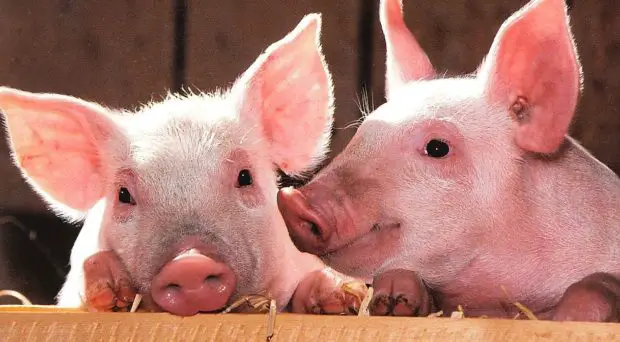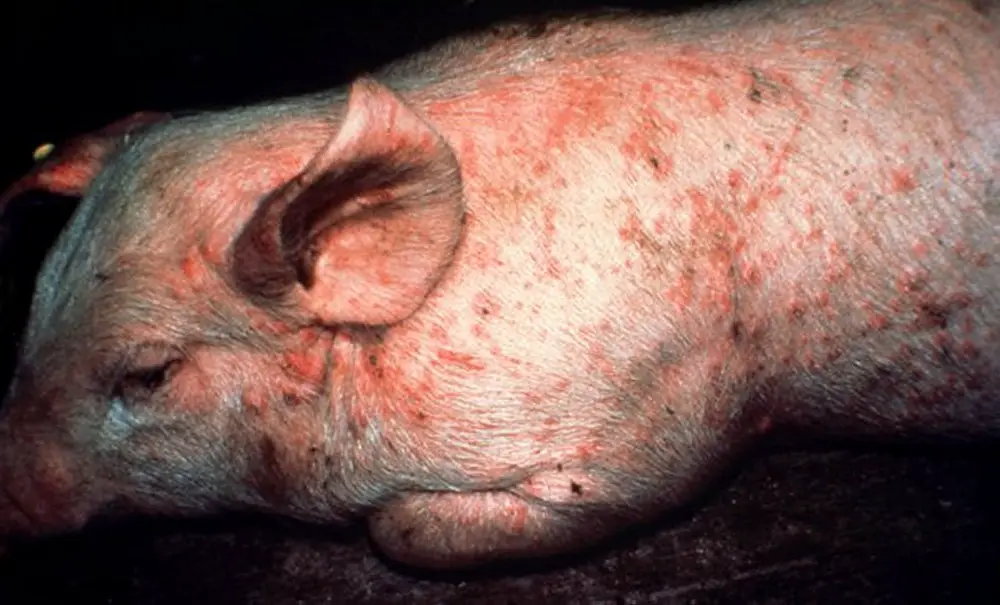A huge part of taking care of any pet is knowing what kind of shots it would require, pigs included.
So do pet pigs need vaccine shots? Even pet pigs need shots not just because it’s a requirement in some cities, but because it’s the best way to avoid sickness and disease.
Yes, some cities require pet pigs to be vaccinated, depending on the risk of disease in different areas. For hogging areas, there’s a huge possibility that your vet will require your pet pig to be vaccinated because of the higher risk of contracting pig disease. To be sure, it is best to consult your veterinarian to find out what kind of shots your pet pig would need.

Some would say that vaccinations aren’t at all needed if you’re keeping your pig at home most of the time. There is also a belief that if you live in a neighborhood where farms aren’t common, there’s no need to worry.
But although location is a huge consideration for pig vaccination, it’s not the only thing to look at. There are a number of other factors that affect the need for vaccinations for your pet pigs.
Factors Considered in Pig Vaccination
Here the main contributing factors that dictate which shots your pet pig would need:
- Location
If you live in an area where there are a lot of pig farms and other livestock, there’s a higher probability of your pet pig catching different forms of diseases. Expect your vet to recommend a number of shots based on what kind of diseases are prevalent in the area.
- State or local ordinances
Regardless of whether you live in a hogging area or not, there may be city or state ordinances in place that require you to get specific shots for your pet pig. Again, your vet would be knowledgeable as to which ones your locality requires you to get for your pigs.
- Veterinarian recommendation
Aside from location and ordinances, your vet may recommend a few additional shots for your pet pig. Your vet knows the overall status of your pig’s health, after all, and would know what other risks it might be exposed to.
Some vets also come from a better-safe-than-sorry perspective, especially if you have the budget for it and if you are more than willing to add layers of protection to your pet pig.
Common Vaccinations for Potbellied Pigs
Here are some of the most common vaccinations given to pot-bellied pigs and other pigs of similar breed:
- Erysipelas
This is the most common vaccine recommended not only for farm pigs, but for pet pigs as well.
Erysipelas is caused by bacteria contracted from dirt. Symptoms include red to black diamond-shaped lesions on the skin, chronic arthritis, high fever, and sudden death.
It is common in growing pigs, but is not so common in lactating piglets because they are still protected by the strengthened immune system caused by their mother’s colostrum.
The illness is more common during warmer months. Although pigs can usually get this from the feces of other pigs seeping in the dirt as well as from birds, it is also possible to get it from a contaminated water supply.
This shot is normally given twice a year, especially if the pig is found in high-risk areas.
- Tetanus
Tetanus also lives in the soil, especially in areas where there are a lot of horses. Although pigs are generally resistant to it, once they DO catch it, there’s a huge chance they would die.
How do they catch tetanus through the dirt?
If your pig has open cuts or wounds and rolls over soil that has tetanus in it, it immediately enters the wound and triggers an infection.
Tetanus shots are usually given on a pig’s 8th week. A booster is given 2 weeks after the initial shot, and is given again every 6 months.
- Leptospirosis
Leptospirosis is caused by a number of different kinds of bacteria, although the vaccination only protects your pig from the most common ones. Sadly, there is no vaccine yet that has the capacity to fully protect your pig from every kind of leptospirosis-causing bacteria out there. But partial protection is still better than having no protection at all.
If there are raccoons or rodents in your area, then expect your pig to be at risk. Know that humans may also be at risk in this case. This is why pig owners around areas with leptospirosis cases have to be extra careful and maintain cleanliness around the area at all times. Practice frequent washing of the hands as well.
Leptospirosis shots are given on a pig’s 8th week. A booster shot follows 2 weeks after that. Then, the shot should be given to the pig on an annual basis.
- Rhinitis
Rhinitis happens when inflammation occurs inside the nose. This is often caused by irritants and bacteria. Although it is usually harmless, things can progress pretty quickly. And when it becomes atropic rhinitis, that’s where the big problem really begins.
It easily spreads if there are a number of pigs in the same place since nose to nose contact is quite common. The infection can also spread through fabric or other things that infected pigs come into contact with.
From there, it can start to damage the pig’s kidneys, liver, and lungs.
- Rabies
There are a number of cities that require pigs to be given rabies shots, although it is rare for pigs to get rabies.
Where could pigs possibly get rabies? In the US, pigs commonly get rabies from bats, raccoons, foxes and skunks. So if you know that your pig isn’t exposed to this kind of wildlife, then you can breathe easy and stop worrying.
- Mycoplasma / Pneumonia
This combination vaccine protects pigs from possible respiratory illnesses, especially the mycoplasma hyopneumoniae strain. Yes, it’s a form of pneumonia.
Symptoms include dry cough, a considerable decrease in appetite, difficulty in breathing, and fever. Pigs that have pneumonia would also show lesions on the lungs when they are slaughtered.

Possible Adverse Reactions to Vaccinations
Is it possible for pigs to have adverse reactions to vaccines?
Just like humans, some pigs may turn out to be allergic to some vaccines. However, these cases are very rare.
Most allergic reactions are considered mild and can quickly be resolved. Most of the time, little to no treatment is needed.
Should a more serious adverse reaction occur, it is important to immediately seek for emergency care.
Just to make sure, try to stay at your vet’s clinic 15 to 20 minutes after the shots have been given. This way, your vet will still be present and able to give immediate care should there be any allergic reactions shown by your pet pig.
Related Questions
What should be done to a piglet after birth?
Ideally, piglets’ teeth should be clipped a few hours after birth so that they don’t hurt the sow the moment they start nursing. When a piglet’s teeth are left alone, they would end up biting the sow when they feed from their mother. This would cause the mother pig to stand up or to become restless, which means that the piglets may not be able to feed properly at all.
Do micro pigs carry diseases?
Although pigs left in the wild may pose a number of health risks, domesticated micro pigs that have been properly immunized and are well taken cared of do not really pose serious health threats to humans.
Of course, some precautions would still have to be observed, such as maintaining a clean environment and frequent hand washing. This is to prevent possible tummyaches or anything similar, especially when the pet pig ends up with ringworm or bacteria.
Is a pot-bellied pig considered livestock?
Pot-bellied pigs are categorized as swine, and swine are considered by the USDA as livestock. Livestock are usually covered by the Animal Welfare Act, unless they are kept as pets and not intended for commercial or scientific use. As far as laws are concerned, there are state and local regulations in place that pig owners should follow.
